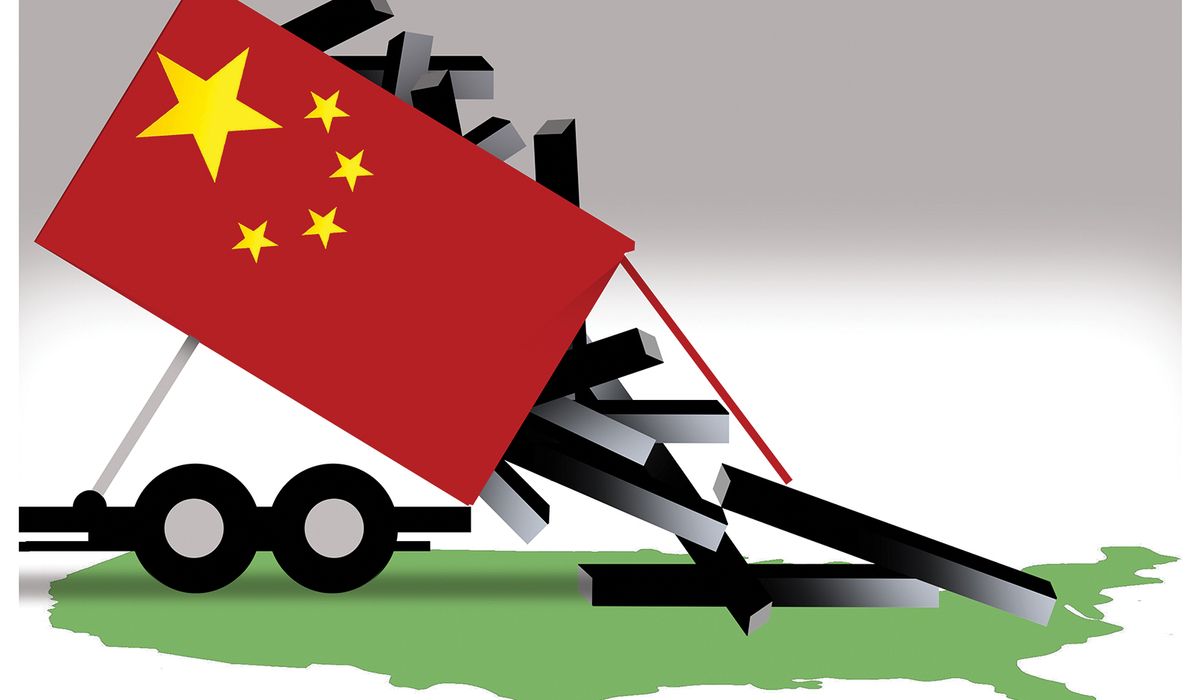


OPINION:
On July 17, the Commerce Department significantly enhanced American economic and national security by imposing preliminary anti-dumping duties of up to 93.5% on Chinese imports of active anode material: high-purity graphite essential for lithium-ion batteries.
This action directly addresses China’s unfair dumping and mercantilist government subsidies, both of which have severely undermined America’s emerging battery industry.
Active anode material (AAM) is the lifeblood of modern lithium-ion batteries that power everything from smartphones and laptops to electric vehicles, drones, medical devices, military communication equipment and grid-scale energy storage systems. Without high-quality graphite anodes, these batteries simply can’t function effectively.
Recognizing graphite’s strategic importance, China has leveraged its well-worn state-driven approach — combining aggressive pricing, government subsidies and targeted market dominance — to effectively corner the AAM market and control global production. Last year alone, America had to import over $300 million of active anode material from China — enough to help power half a million electric vehicles.
In December, the American Active Anode Material Producers (AAAMP) — an alliance of U.S. companies including Anovion Technologies, Syrah Technologies, NOVONIX, Epsilon Advanced Materials and SKI Inc. — got the tariff ball rolling by filing petitions highlighting the severe economic injury caused by China’s predatory pricing and subsidies. These producers provided compelling evidence that their industry was being materially harmed, or prevented from developing, by artificially low-priced Chinese imports.
The U.S. International Trade Commission (ITC) swiftly responded in early 2025, affirming preliminarily that Chinese graphite imports significantly undercut American producers, injuring or impeding the establishment of a domestic industry. This finding of injury was a crucial prerequisite allowing Commerce to initiate robust anti-dumping (AD) and countervailing duty (CVD) investigations.
Commerce investigators meticulously reviewed cost structures, pricing data and subsidy records. Their findings confirmed massive government subsidies to Chinese producers, with cooperating firms receiving calculated countervailing duty rates of approximately 11.58%. Chinese companies failing to provide adequate data — including Huzhou Kaijin and Shanghai Shaosheng — were assigned extraordinary adverse-inference rates exceeding 700%, a legally sanctioned response to noncooperation.
The investigation further revealed that nearly all Chinese graphite exporters were systematically pricing their products far below fair market value in the U.S., justifying a preliminary nationwide dumping margin of 93.5%. Companies unable to prove independence from Chinese state influence faced even higher penalties, with a China-wide dumping rate set at 102.72%.
By imposing these duties, Commerce is sending a clear signal to the market: Invest in America. U.S. companies within AAAMP have repeatedly demonstrated readiness to expand production and meet domestic demand once fair market conditions are restored. This action provides them the breathing room necessary to innovate, attract investment and build domestic capacity.
The broader policy context here is crucial. Lithium-ion batteries represent a cornerstone technology essential for America’s energy independence, economic resilience and national security. Allowing China to monopolize critical components like graphite undermines these strategic objectives and weakens U.S. competitiveness.
History has repeatedly demonstrated the dangers of excessive reliance on foreign supply chains — from the 1973 OPEC oil embargo to pharmaceutical and semiconductor shortages during the COVID-19 pandemic, and export restrictions imposed by China in 2023 on critical minerals like gallium, germanium, rare earth magnets and, yes, graphite itself.
Indeed, China’s move on graphite further underscores the urgent need for the U.S. to rapidly build its domestic graphite mining, processing and active anode material production capabilities. Strengthening domestic supply chains is now essential not only for economic resilience but also to ensure America’s energy independence and national security.
With preliminary duties now active, Commerce’s actions have already begun reshaping market dynamics. Final determinations are anticipated by year’s end, and the ITC’s expected final injury determination will solidify these protections for five years, subject to periodic reviews.
Ultimately, this bold and necessary trade enforcement action aligns squarely with a broader “America First” policy agenda focused on revitalizing domestic manufacturing and securing critical supply chains.
It is yet another Trumpian win for U.S. economic and national security, and both the Commerce Department and International Trade Commission deserve a hat tip.
• Peter Navarro is the White House senior counselor for trade and manufacturing. This article originally appeared in his Substack at http://peternavarro.substack.com.
